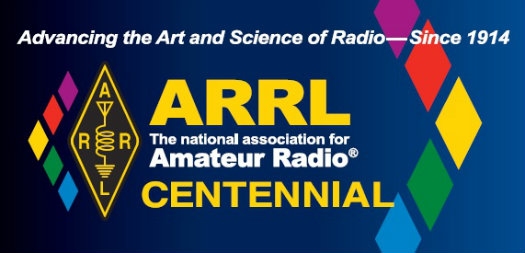For a long time now I've tried to maintain 2 separate blogs. One devoted to radio/SMEM stuff, and the other one a general blog.
Well, I've finally decided to merge the two, in the hopes that I can concentrate on putting out better content...or at least consistent content.
This blog will remain as it is, but all of the posts have been merged with my other blog, and all future posts will occur over yonder.
Check it out at
Friday, February 21, 2014
Monday, February 10, 2014
Grammatically Correct Confusion
I read a lot of blog articles about Social Media in Emergency Management, Law Enforcement, First Response, etc.
Lately, there have been conflicting lines of thought regarding grammar in Social Media posts.
The Advanced Public Information Officer training, at FEMA's Emergency Management Institute, stresses "Flawless Grammar" in Social Media releases.
However, Cheryl Bledsoe (@CherylBle), at the SM4EM Blog responds with,
Over at the IACP Center For Social Media's blog, Billy Grogan (@ChiefGrogan), in a piece titled "The Grammar Police," writes"
His blog post is riddled with subtle spelling errors, in an effort to draw attention to his words, and the impact that poor grammar can have to the overall message.
After reading these two blog posts, which seem to contain contradictory suggestions, I have come to the conclusion that sometimes the importance of the message outweighs the need for 100% flawless grammar...depending on the Social Media platform.
Posts on Facebook, or blog posts with critical information? Absolutely, you had better run your prose past a proof reader first.
On Twitter, with it's 140 character limit, you might need to exercise the editorial pen quite a bit. However, keep in mind that your customer (general public, residents, etc) need to be able to understand what you post, as well as understand the importance of it.
Not sure what to abbreviate, or how? Check out Webopedia's Twitter Dictionary.
Lately, there have been conflicting lines of thought regarding grammar in Social Media posts.
The Advanced Public Information Officer training, at FEMA's Emergency Management Institute, stresses "Flawless Grammar" in Social Media releases.
However, Cheryl Bledsoe (@CherylBle), at the SM4EM Blog responds with,
"...The Twitter community will ask you to provide timely, relevant and interesting information. Accuracy is good, too, although in dynamic situations may be a little tricky. I've heard it said that you can be timely or accurate, but rarely both at the same time. Your community will forgive you for inaccuracies as long as you quickly correct misinformation and communicate regularly."Ok, this makes sense.
Over at the IACP Center For Social Media's blog, Billy Grogan (@ChiefGrogan), in a piece titled "The Grammar Police," writes"
"...Although some shorthand is used on certain social media sites like Twitter, because of the character limitation, that should not be the norm. It is important that the massage the department is trying to convey is clearly and accurately represented so the department’s social media followers will get it. Some posts may offer critical information that could place the public in danger if misunderstood."
His blog post is riddled with subtle spelling errors, in an effort to draw attention to his words, and the impact that poor grammar can have to the overall message.
After reading these two blog posts, which seem to contain contradictory suggestions, I have come to the conclusion that sometimes the importance of the message outweighs the need for 100% flawless grammar...depending on the Social Media platform.
Posts on Facebook, or blog posts with critical information? Absolutely, you had better run your prose past a proof reader first.
On Twitter, with it's 140 character limit, you might need to exercise the editorial pen quite a bit. However, keep in mind that your customer (general public, residents, etc) need to be able to understand what you post, as well as understand the importance of it.
Not sure what to abbreviate, or how? Check out Webopedia's Twitter Dictionary.
Thursday, January 30, 2014
How can we do it better?
I have determined that there are roughly 35,000 Facebook groups devoted to the city of Maricopa, where I reside. There are 7,000 that are solely devoted to selling, buying, giving away and hoarding stuff. And then, every development in town has their own community group (or 10-12).
There are groups for crime prevention, crime rumor proliferation, and there are probably a few secret ones for crime planning, as well.
All of this data to sift through, and that's only one Social Media platform. The PD has one person dedicated as the Public Information Officer. It is physically impossible for him to do his PIO job, as well as keep an eye on what's happened digitally in town.
The Block Watch coordinator is trying to get a handle on some of the rumors, but it's too much for her, too.
I think it's time to go to the Chief with a proposal for the VIP volunteers. Maybe some of us could help the PIO with the "connecting with the people" details online.
Something has to be done, and failure is not an option. We cannot afford to not engage our customer in their desired mode.
(Hat tip to Seth Godin's blog. Also, group count might be slightly exaggerated for dramatic effect.)
There are groups for crime prevention, crime rumor proliferation, and there are probably a few secret ones for crime planning, as well.
All of this data to sift through, and that's only one Social Media platform. The PD has one person dedicated as the Public Information Officer. It is physically impossible for him to do his PIO job, as well as keep an eye on what's happened digitally in town.
The Block Watch coordinator is trying to get a handle on some of the rumors, but it's too much for her, too.
I think it's time to go to the Chief with a proposal for the VIP volunteers. Maybe some of us could help the PIO with the "connecting with the people" details online.
Something has to be done, and failure is not an option. We cannot afford to not engage our customer in their desired mode.
The answer to, "Is that the best you can do..." ...is always no.We have the technology, the volunteers and the desire to get it right. We just need to take the next step.
A better question is, "what resource would enable you to do even better?"
(Hat tip to Seth Godin's blog. Also, group count might be slightly exaggerated for dramatic effect.)
Friday, January 24, 2014
100 Years of ARRL
This year, the American Radio Relay League celebrates it's 100th birthday.
They're celebrating all year long. Here is a PDF document with information.
What will the next 100 years bring us? Even smaller radios? More options in the palm of your hand?
Maybe now is the time for you to get your License, if you're not already a ham. If you are a Ham, are you active? Need a new radio?
HamUniverse.com wrote a neat little article about purchasing your first radio. Here it is.
Tips for Choosing your First Radio for Your Ham Station and getting on the AIR! By N4UJW
Maybe join a ARRL Affiliated Club in your area, too. Become active in your community.
Become Radio Active in 2014!
73, de n7fan
They're celebrating all year long. Here is a PDF document with information.
What will the next 100 years bring us? Even smaller radios? More options in the palm of your hand?
Maybe now is the time for you to get your License, if you're not already a ham. If you are a Ham, are you active? Need a new radio?
HamUniverse.com wrote a neat little article about purchasing your first radio. Here it is.
Tips for Choosing your First Radio for Your Ham Station and getting on the AIR! By N4UJW
Maybe join a ARRL Affiliated Club in your area, too. Become active in your community.
Become Radio Active in 2014!
73, de n7fan
Subscribe to:
Comments (Atom)



